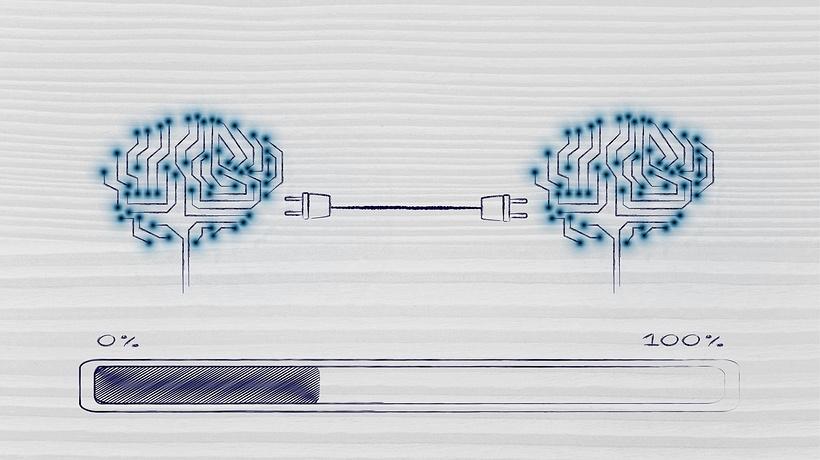How To Improve Knowledge Retention In eLearning: 6 Invaluable Tips
Repetition is one of the most powerful mental processes, as it tells your brain that this particular action, idea, or task is worth remembering. After applying specific knowledge so many times, it gradually makes its way from your short-term memory to the long-term memory vault. However, even items that are safely locked away can be forgotten if they aren't put into practice regularly. Slowly but surely the mental schema begins to break, and new information replaces the old. Reviewing, Recapping, and Refreshing are the three R's that every eLearning professional should consider, and these 6 tips will help you apply them in your eLearning course design.
1. Encourage Online Learners To Summarize What They've Learned
Online learners are only able to put information into their own words if they fully understand the concepts involved. Thus, summarizing information actually serves two purposes. Not only does it help to assess an online learner's progress or proficiency, but it helps them review the information and commit it to memory. They tie new knowledge to ideas they've already learned, which strengthens mental schemata and makes it easier to remember and recall. At the end of every eLearning course or module, ask them to create a summary of the main takeaways, such as a bullet point list that covers all of the key concepts. Online learners can also use their own notes for future reference when it's time to brush up on the information.
2. Integrate Serious Games
Serious games may be fun and entertaining, but they also have an ulterior motive. The truth is that they help online learners to review information in an engaging and interactive way, without even knowing that they are actually learning. Serious games also provide bite-size bits of information and can be accessed time and again, thereby reducing cognitive overload. eLearning professionals should consider mobile learning games that adult learners can use to build their skills and master a task anywhere. When they are taking a break, stuck in traffic, or waiting for their next appointment, they can quickly play the online game and refresh their memory. Make sure to use a responsive design tool to create your eLearning games, as the eLearning content will automatically adjust to fit the screen size and resolution of tablets, smartphones, and laptops.
3. Assess Early And Often
You shouldn't wait until the end of your eLearning course to assess your online learner's knowledge. In fact, you may want to create a diagnostic assessment that they complete before the eLearning course and then one after each eLearning lesson or module. This gives them the opportunity to track their progress and to periodically review what they've learned. If they discover that they need additional help with a particular subject, they still have time to seek out resources and improve their learning habits. As a result, they can commit the correct information to memory. This is in stark contrast to only assessing them upon completion, which doesn't allow them to make the necessary changes beforehand.
4. Include Real-World Scenarios And Simulations
eLearning scenarios and simulations give online learners the power to put their knowledge into practice. They must make choices that lead to certain outcomes, which offers them immediate feedback. For example, if they embark down a path that leads to negative consequences they have the opportunity to modify their behaviors right away. They can then participate in the eLearning scenario or simulation again to achieve the desired outcome, which serves as positive reinforcement. These activities also mimic real world environments and situations, which gives them the chance to apply knowledge as they would in real life. Context is the key to meaningful learning and retention.
5. Ask Them To Develop Their Own eLearning Materials
This approach takes summarization one step further by asking online learners to play the role of instructor. They must gather all of the information and apply preexisting knowledge to create a website, online presentation, eLearning video, or slideshow that they'll share with their peers. They can even create a series of eLearning questions at the end of the eLearning activity to assess other online learners and help them boost their knowledge retention. Encourage them to present the materials to their peers by posting it on the forum or blog, and then ask the audience to leave their feedback. In addition to creating shareable materials, they may also want to develop study tools that they can use on their own. For example, flashcards can help them to remember the core ideas and concepts, as well as mind maps or timelines.
6. Repeat Information Using Different Formats
Online learners must be able to recall the information in a wide range of situations, such as when they are facing a challenge during the course of their workday. For this reason, it's important to repeat information using a variety of eLearning activities and formats. For example, an online task can be described with a bullet-point list, then mapped out in a branching scenario. The steps are the same, but the delivery is completely different. Therefore, online learners can absorb and review the information effectively, regardless of their learning needs or preferences. Mixing up the formats can also help to prevent learner boredom, which increases engagement and motivation.
These 6 tips will give you the opportunity to create memorable eLearning courses that stick with online learners for years to come. Just bear in mind that time is foe of memory. So, you should plan on offering refresher eLearning courses to enhance knowledge retention and recall.
Are you looking for additional ways to improve knowledge retention without cognitive overload? Read the article 7 Tips To Reduce Cognitive Overload In eLearning to discover how to reduce your learners cognitive overload when designing eLearning experiences.







